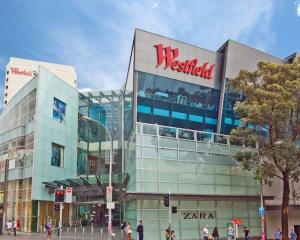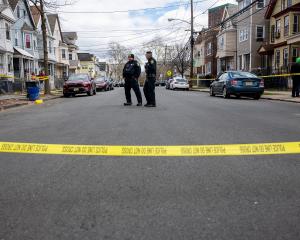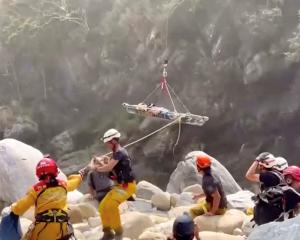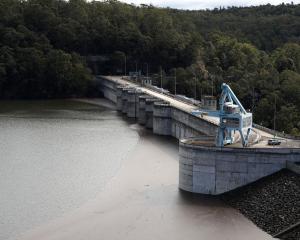Significant damage has been reported along the western coast of Tonga's main island and the death of a British woman confirmed following the weekend's massive volcanic eruption and tsunami.
The New Zealand High Commission reported the damage along the western coast of the main island of Tongatapu, where there are many vacation resorts, and the waterfront of the capital, Nuku'alofa.
The brother of a 50-year-old British woman, Angela Glover said she was killed trying to rescue the dogs she looked after at a rescue shelter she had set up with her husband in the South Pacific archipelago.
Glover's brother Nick Eleini confirmed her body had been found. New Zealand state broadcaster TVNZ earlier reported she was missing after being swept away by a wave while her husband managed to hold onto a tree.
The South Pacific archipelago has remained largely cut off from the world since the eruption on the uninhabited volcanic island of Hunga-Tonga-Hunga-Ha'apai cut its main undersea communications cable.
A thick layer of ash blanketed the entire island, the High Commission said, adding it was working to establish communications with smaller islands "as a matter of priority."
The United Nations said a distress signal has been detected in an isolated, low-lying group of Ha'apai islands, and it had particular concerns about Fonoi and Mango islands. According to the Tonga government, 36 people live on Mango and 69 on Fonoi.
A satellite image posted by the UN Office for the Coordination of Humanitarian Affairs (OCHA) indicated there was damage to scores of structures on Nomuka island.
"Further volcanic activity cannot be ruled out," OCHA said, reporting only minor injuries but emphasising that formal assessments, especially of the outer islands, had yet to be determined.

The Ha’atafu Beach Resort, on the Hihifo peninsula, 21km west of the capital Nuku’alofa, was “completely wiped out”, the owners said on Facebook.
The impact of the huge eruption was felt as far away as Fiji, New Zealand, the United States and Japan. Two people drowned off a beach in northern Peru due to high waves caused by the tsunami, while officials in Japan reported several evacuations.
The island of Hunga-Tonga-Hunga-Ha'apai all but disappeared following the blast, according to satellite images from around 12 hours later, making it difficult for volcanologists to monitor ongoing activity.
Experts said the volcano, which last erupted in 2014, had been puffing away for about a month before Saturday's eruption.
The Red Cross said it was mobilising its network to respond to what it called the worst volcanic eruption the Pacific has experienced in decades.
Alexander Matheou, the Red Cross' Asia Pacific director, said water purification to remove ash contamination, providing shelter and reuniting families were the priorities.
Relief efforts have been hampered by a lack of communication. Samiuela Fonua, the chair of Tonga Cable, said there were two cuts in the undersea communications cable that would not be fixed until volcanic activity ceased, allowing repair crews access.
"The condition of the site is still pretty messy at the moment," Fonua told the Australian Broadcasting Corp.
COVID-19 RISK
Tonga's deputy head of mission in Australia, Curtis Tu'ihalangingie, said Tonga was concerned about the risk of aid deliveries spreading the virus to the island, which is Covid-free.
"We don't want to bring in another wave - a tsunami of Covid-19," Tu'ihalangingie told Reuters by telephone, urging the public to wait until a disaster relief fund was announced.
Any aid sent to Tonga would need to be quarantined, and it was likely no foreign personnel would be allowed to disembark aircraft, he said.
International communication has been severely hampered by damage to an undersea cable, which could take more than a week to restore, and Australia and New Zealand were assisting with satellite calls, he said.
Telephone networks in Tonga have been restored but ash was posing a major health concern, contaminating drinking water.
"Most people are not aware the ash is toxic and bad for them to breathe and they have to wear a mask," Tu'ihalangingie said.
The Red Cross said it was mobilising its network to respond to what it called the worst volcanic eruption the Pacific has experienced in decades.
Katie Greenwood, the Pacific head of delegation for the International Federation of Red Cross and Red Crescent Societies, told Reuters up to 80,000 people could have been affected by the tsunami.
Alexander Matheou, the federation's Asia Pacific regional director, said water purification, providing shelter and reuniting families were the priorities - but they had yet to establish direct contact with colleagues on the ground and were relying on estimates based on previous such disasters.
Scientists were struggling to monitor the volcano, after the explosion destroyed its sea-level crater and drowned its mass, obscuring it from satellites.
Hunga Tonga-Hunga Ha'apai has erupted regularly over the past few decades. Early data suggests the eruption was the biggest since Mount Pinatubo in the Philippines 30 years ago, New Zealand-based volcanologist Shane Cronin told RNZ.
"This is an eruption best witnessed from space," Cronin said.













